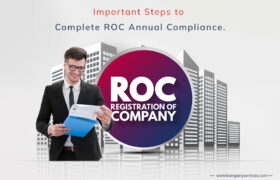Because of the ever-changing nature of the business world, it is crucial to carefully select the most suitable approach for establishing a firm. Both Limited (Ltd) and Private Limited (Pvt Ltd) companies are commonly used options, each with its own unique set of characteristics and qualities. This study explores the differences between limited liability companies and private limited companies, providing valuable information for those starting businesses, such as venture capitalists and entrepreneurs. The legal structure chosen significantly impacts a company’s direction and operations.
Comprehending the Fundamentals of Limited Liability Companies and Private Limited Companies
To start, let’s understand the basics of both limited liability companies and private limited companies. Our goal is to clarify the distinctions between the two types of businesses.
Ownership and Shareholders:
- Limited Companies (Ltd): Limited companies can be either publicly traded or privately held. Publicly traded limited companies distribute ownership among public shareholders, who buy and sell shares on the stock market. In contrast, private limited companies have a smaller number of shareholders, typically including founders, family, and close associates. Shares in private limited companies are not freely traded on the stock exchange, and the number of shareholders is usually limited to fifty. Ownership is concentrated among a close-knit group of individuals.
Share Capital and Fundraising:
-
Public Limited Companies (Ltd): These companies can raise capital by issuing shares to the public, which can be a significant source of funds for expansion and large projects. However, they are subject to stringent regulatory obligations and public scrutiny.
-
Private Limited Companies (Pvt Ltd): These companies raise capital through a more controlled process, often from a limited group of investors. The regulatory burden is generally lower compared to public companies, which can be advantageous for those preferring a more discreet approach to fundraising.
Regulatory Compliance:
-
Public Limited Companies (Ltd): Must adhere to rigorous regulatory compliance, including financial disclosures, regular audits, and governance standards to ensure transparency and protect public shareholders.
-
Private Limited Companies (Pvt Ltd): Face fewer regulatory requirements and scrutiny, allowing greater flexibility in decision-making and operations while still adhering to necessary legal standards.
Minimum Capital Requirements:
-
Public Limited Companies (Ltd): May be subject to minimum capital requirements imposed by regional regulations to ensure financial stability.
-
Private Limited Companies (Pvt Ltd): Generally have lower minimum capital requirements, making them more accessible for smaller groups and businesses with limited initial capital.
The Implications of Pvt. Ltd. and Limited Liability Companies for Management
Decision-Making and Flexibility:
-
Public Limited Companies (Ltd): The decision-making process is typically more complex due to a board of directors, shareholders’ meetings, and regulatory approvals. This can slow down decisions but ensures a democratic approach.
-
Private Limited Companies (Pvt Ltd): Can make decisions more quickly and efficiently with fewer shareholders. This allows for more flexible and expedited decision-making.
Information Disclosure:
-
Public Limited Companies (Ltd): Required to disclose extensive information, including financial statements and business transactions, to promote transparency and inform shareholders and the public.
-
Private Limited Companies (Pvt Ltd): Have more control over the information they disclose. Although they must maintain accurate financial records, the level of public disclosure is lower, aligning with their private nature.
Access to Capital Markets:
-
Public Limited Companies (Ltd): Benefit from access to capital markets for equity funding, which is crucial for large projects and expansion. However, they are also more vulnerable to market volatility.
-
Private Limited Companies (Pvt Ltd): Rely on personal investment resources such as bank loans, venture capital, or private equity. This approach limits the scale of capital but provides a more stable financial environment.
Exit Strategy:
-
Public Limited Companies (Ltd): Exiting can be challenging, typically involving the sale of shares on the stock market. Shares are publicly traded, which can also lead to risks like hostile takeovers.
-
Private Limited Companies (Pvt Ltd): Exiting is usually simpler, involving share transfers as per the company’s articles of association. This provides founders and stakeholders with more control.
Conclusion:
Choosing between a Limited Liability Company (Ltd) and a Private Limited Company (Pvt Ltd) is not straightforward. Business owners must weigh the advantages and disadvantages of each structure, considering their business goals, capital needs, and risk tolerance.
While Ltd companies offer access to public markets and larger pools of capital, they come with increased regulatory scrutiny and complexity. Pvt Ltd companies, on the other hand, provide a more flexible and personal environment, suited for those prioritizing control and a close-knit ownership structure.
Ultimately, the decision should align with the company’s long-term objectives, growth plans, and vision. A thorough understanding of the legal, economic, and operational implications is essential for navigating this complex landscape successfully.




